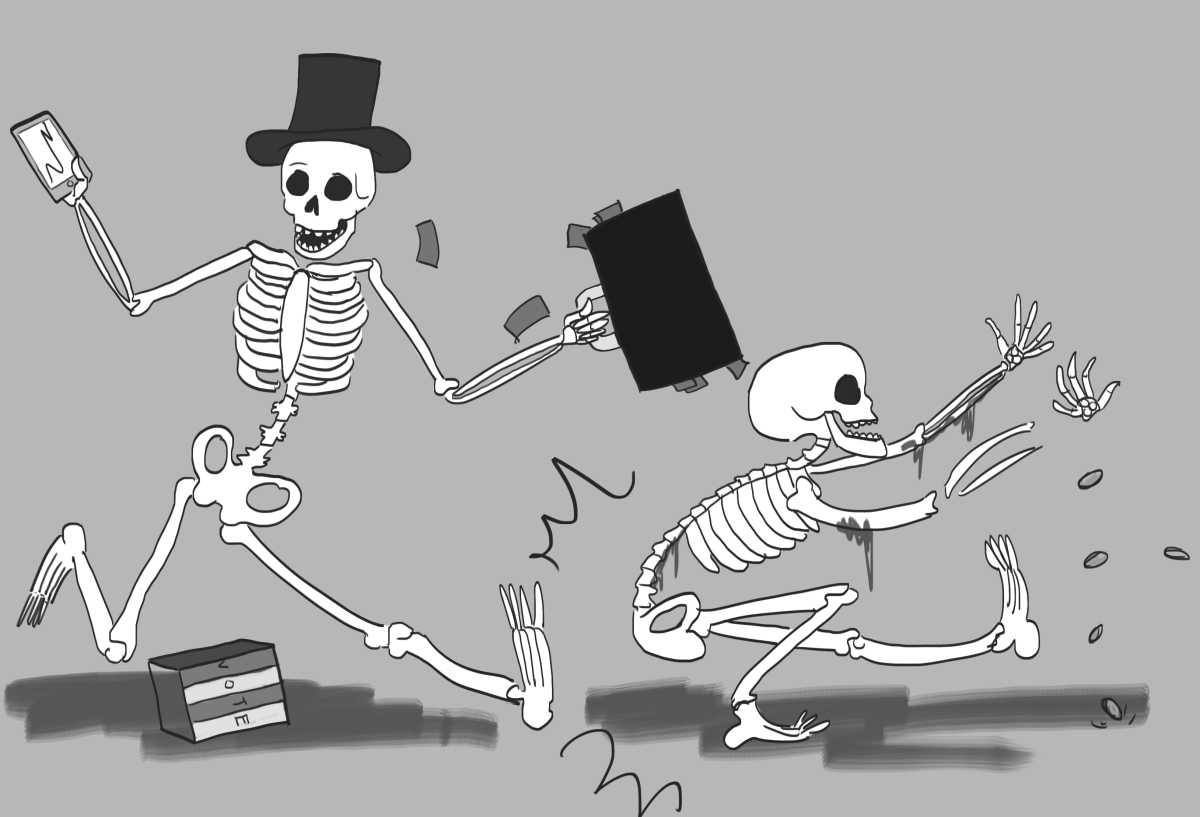Halloween is a time to celebrate the horrific. This holiday is a testament to the revelry that is inseparable from fear and an opportunity to indulge playfully in the seductive anxiety of the unknown. Given the horror and violence that constitutes so much of our existence, perhaps there is an element of catharsis here as well.
The writing of H.P. Lovecraft teems with cosmic horror. In it, humanity comes face to face with the vile incoherency of radical otherness– meaning disintegrates, leaving only madness and death behind. When read within the context of this unhallowed time of year, there is little that can do more to arouse the darker corners of the imagination.
As if rising directly from the pages of Lovecraft’s seminal The Call of Cthulhu, neoliberalism spreads its tentacular influence across every aspect of modern life.
Neoliberalism is the doctrine of the unhinged free market. It reduces every object to a commodity and every person to a consumer, organizing society accordingly.
The otherworldly antagonists of many of Lovecraft’s works are known only as the Old Ones; their history reaches back to a time before time, where within the darkness of prehistory they ruled over the young, chaotic Earth. Neoliberalism’s history is equally ambiguous, yet many significant events can be observed.
The philosophy of neoliberalism was first categorically presented in the early to mid-20th century, most notably in the works of Frederick Hayek, Ludwig von Mises, and Karl Popper. Most fundamentally, it is a call for the unrestrained privatization of the public sphere, the integration of competition at every level of society, and the spreading of free-market ideology across every corner of the globe.
By the eighties, neoliberalism had become the dominant ideology of the West. Politicians such as Margaret Thatcher and Ronald Reagan served as the faces for this new regime, and behind the scenes, society was restructured in neoliberalism’s own image. The rich received massive tax cuts, resulting in dramatic budget deficits and an inflated natural debt while militant reactionary factions in places such as Latin America and the Middle East were funded to usurp democratically elected governments who struggled against forced assimilation into the neoliberal terrain.
Today, the situation has only deteriorated. Neoliberalism has intensified economic and political crises. The 2008 financial collapse drastically escalated wealth inequality, and the so-called austerity measures that were imposed upon decimated economics such as that of Greece gutted social welfare in the bankrupt nations. The neoliberal crusade abroad has resulted in an endless cycle of ever-present war. The doctrine of the Cthulhu cult foretells a time in which the Old Ones will waken and plunge the world into an orgy of murder and cruelty. In neoliberalism, this doctrine is at last fulfilled.
The inhuman neoliberal hegemony has not merely affected the external world, but, like the fateful encounters of Lovecraft’s characters with the horror of the inhuman, uproots our notions of personal identity as well. Neoliberalism realizes competition and ruthlessness and penalizes those who do not conform to its conception of human beings. As a result, depression and anxiety have drastically increased, and long-established social fabrics are annihilated and repackaged for sale.
The late cultural theorist Mark Fisher once described Lovecraft as the “the great poet of capital.” As we celebrate Halloween, we would do well to meditate on the horror that permeates through the every day, and how its inhuman logic threatens existence itself. Despite the danger of facing such horror, we must bravely look Cthulhulic neoliberalism in the face, answering its darkness with determined solidarity.
–Brad Waldraff is a philosophy senior
The Lovecraftian Horror of Neoliberalism
October 31, 2017
Illustration by Kennedy Swift | Staff Illustrator
Donate to The University Star
Your donation will support the student journalists of Texas State University. Your contribution will allow us to purchase equipment and cover our annual website hosting costs.



















